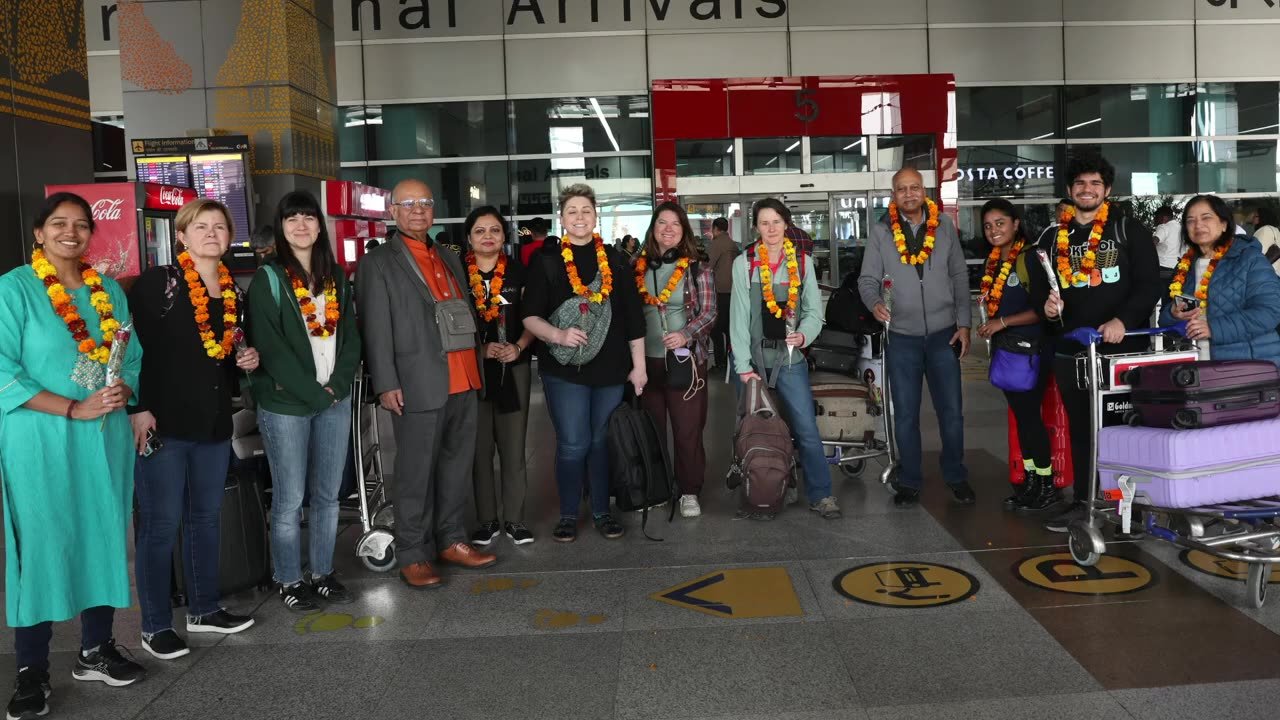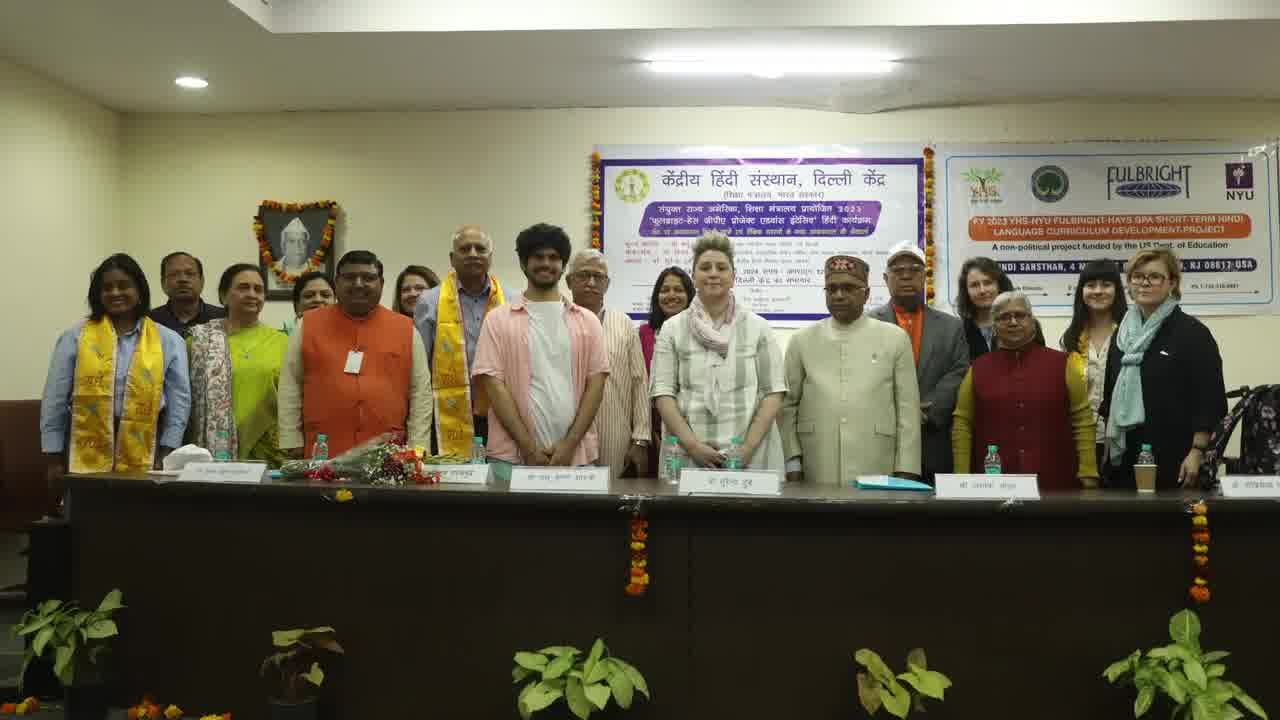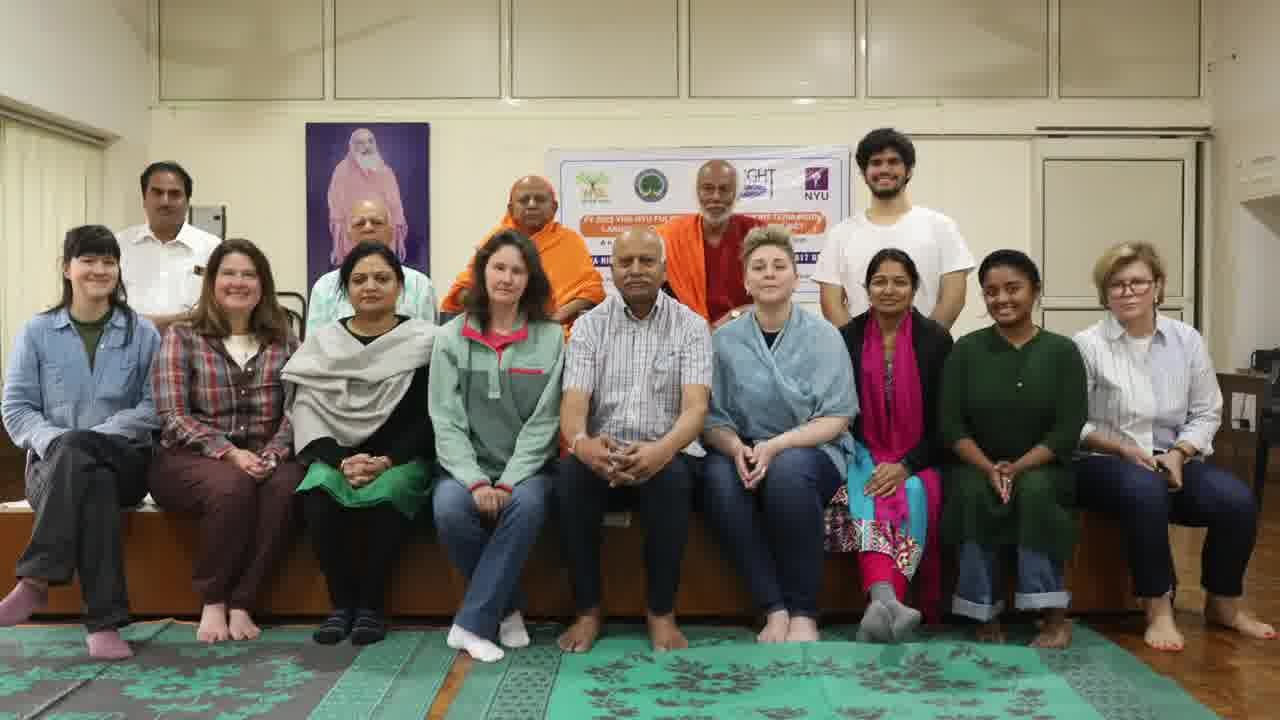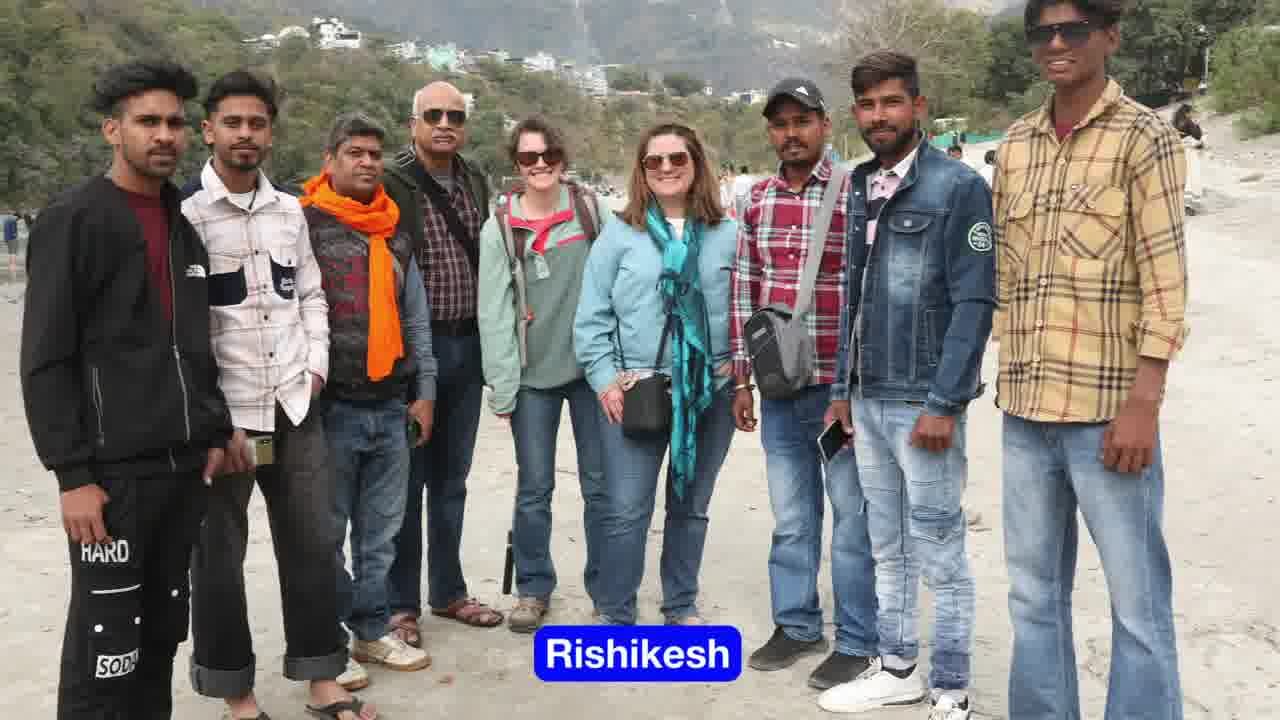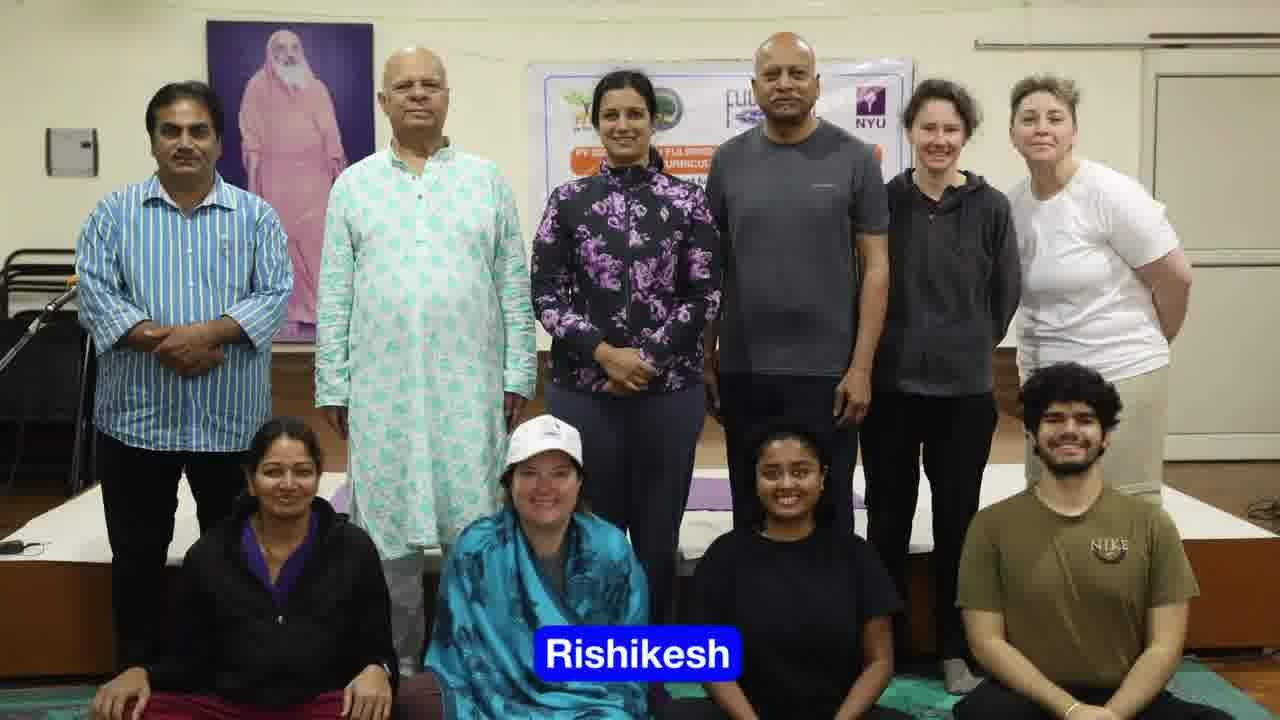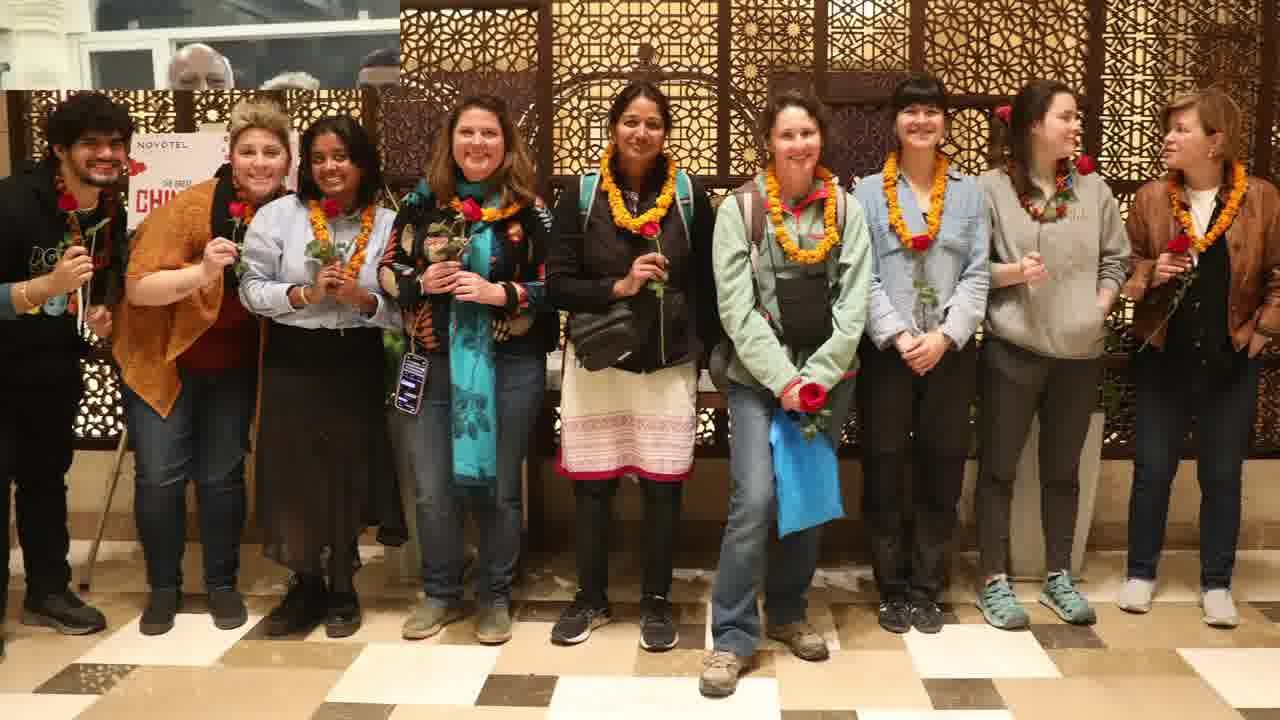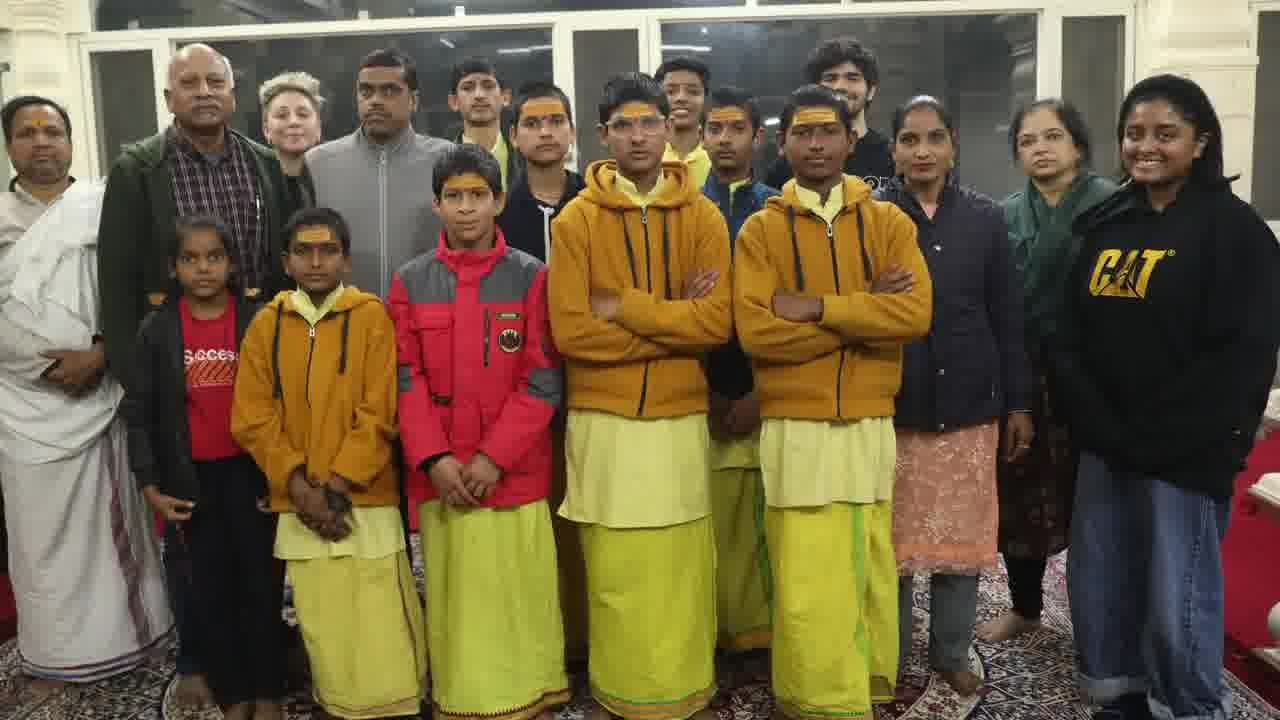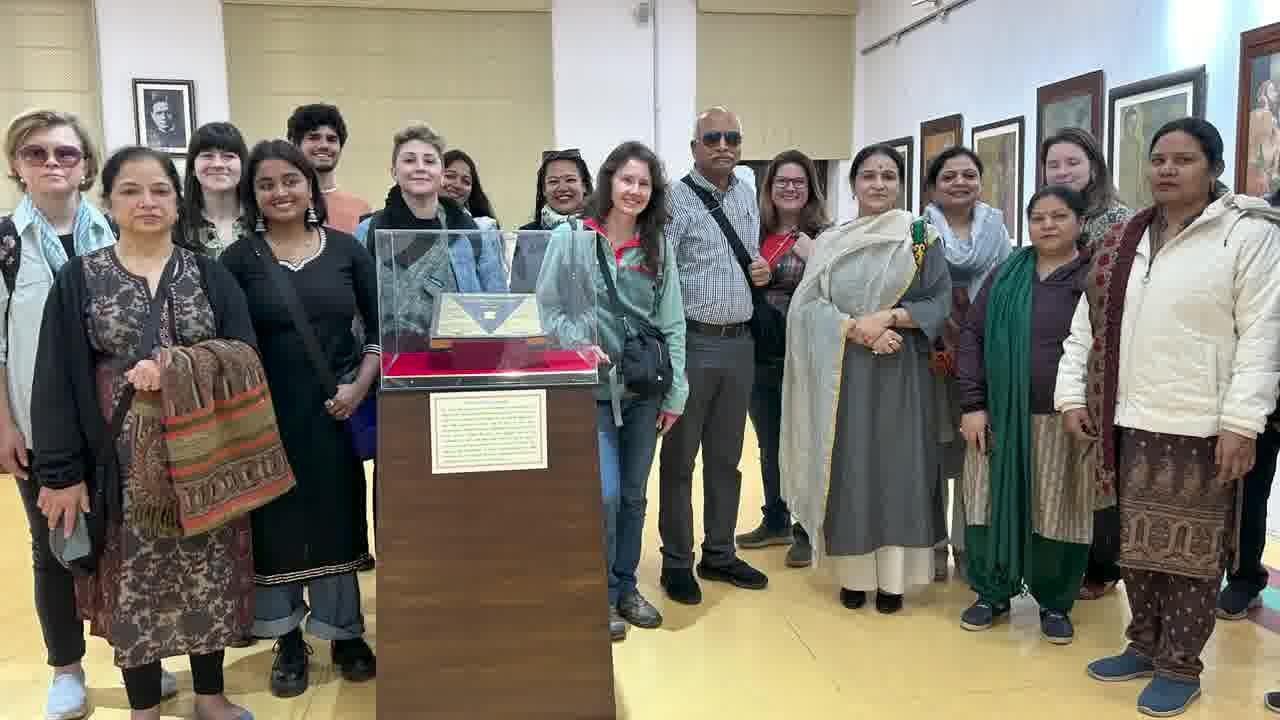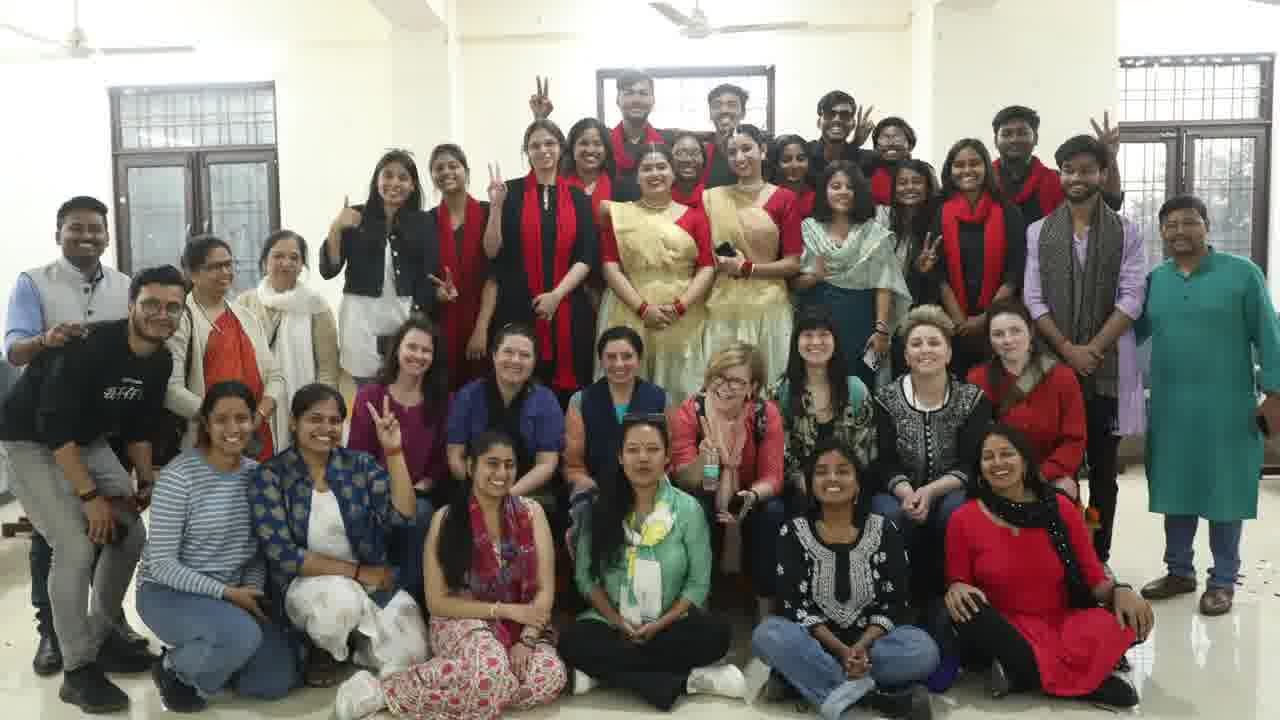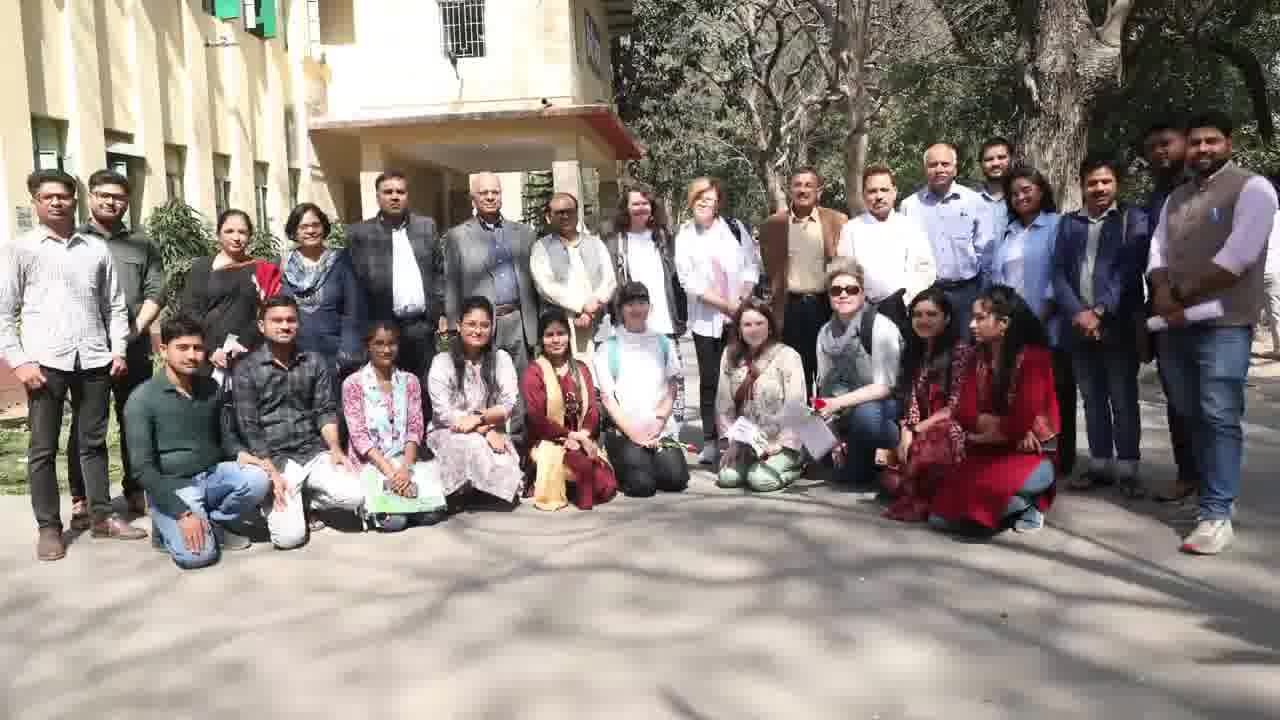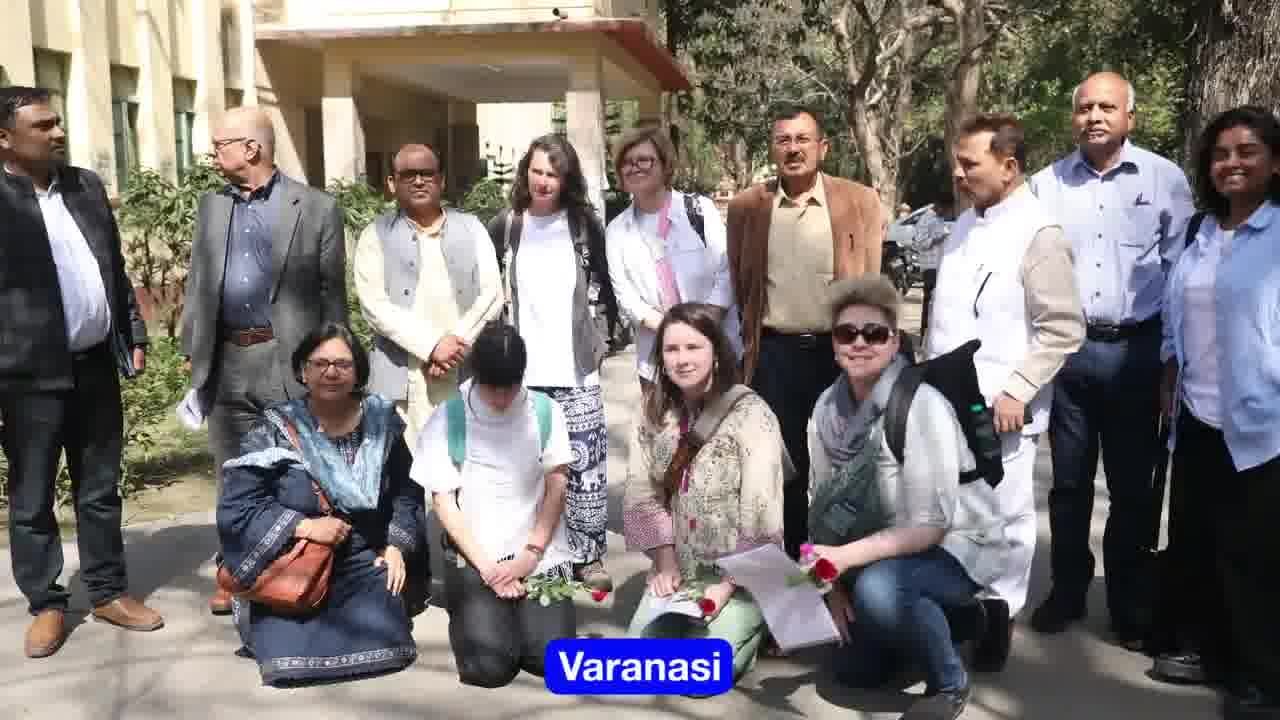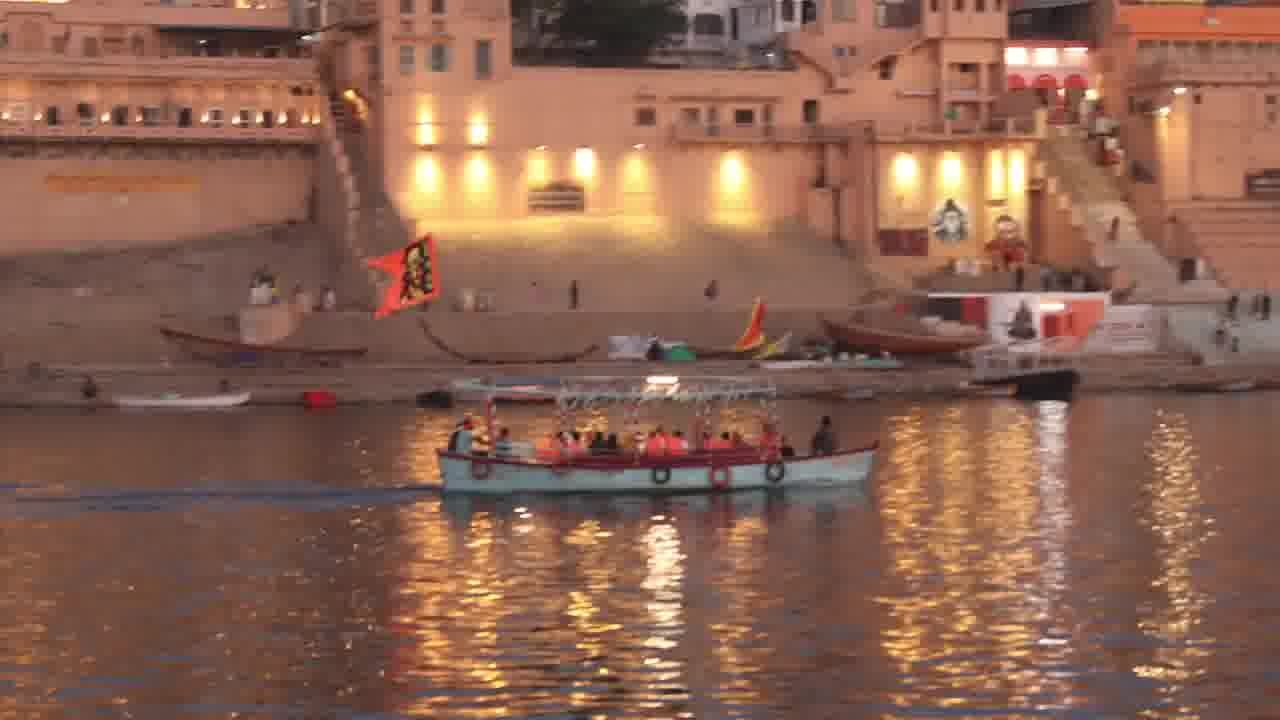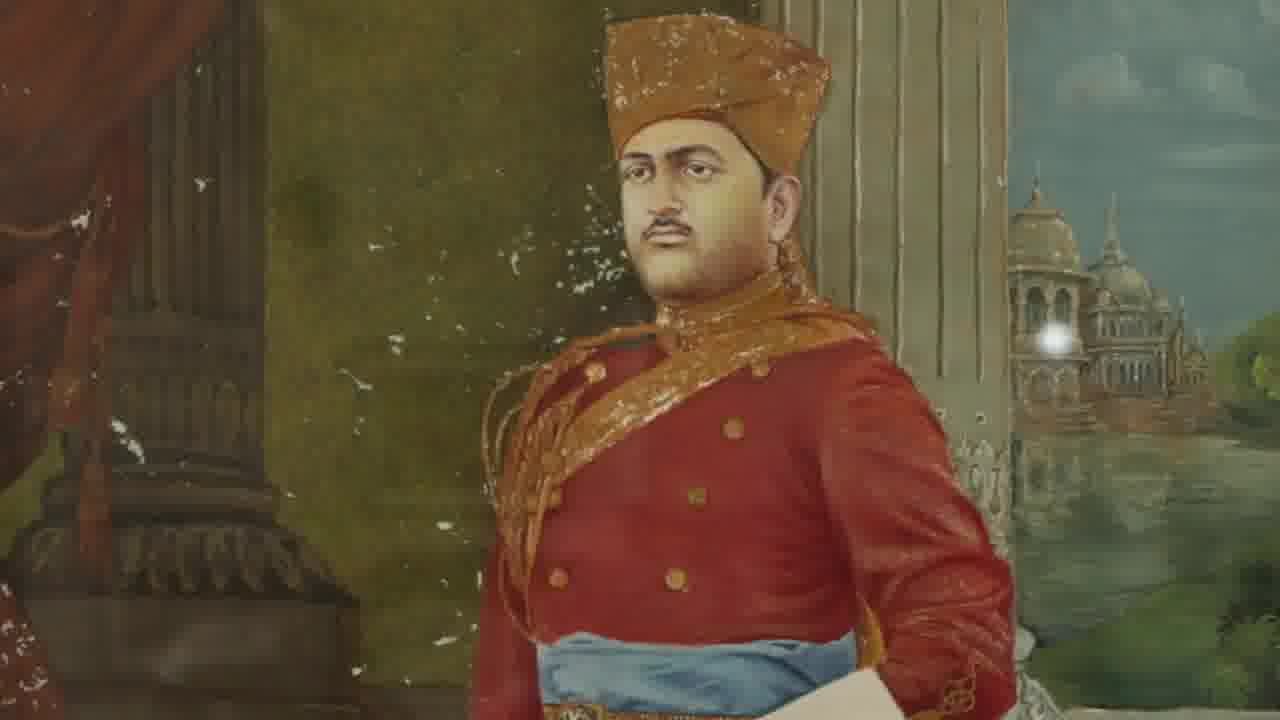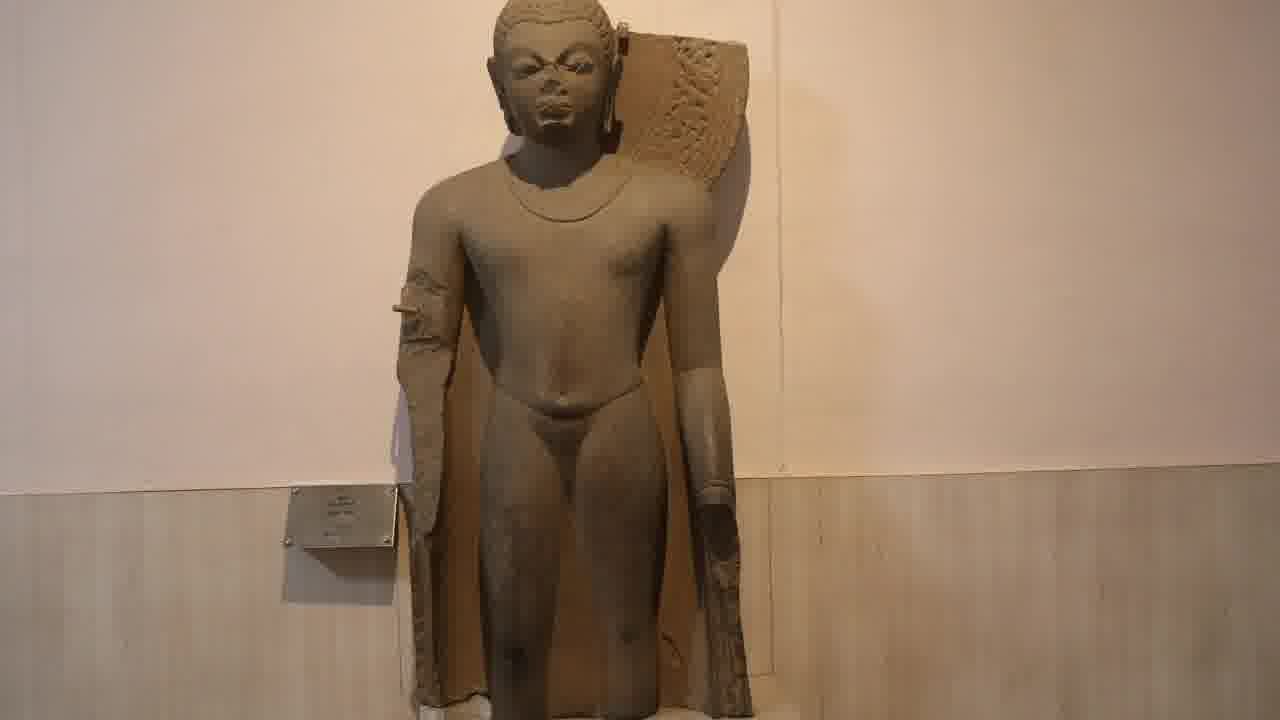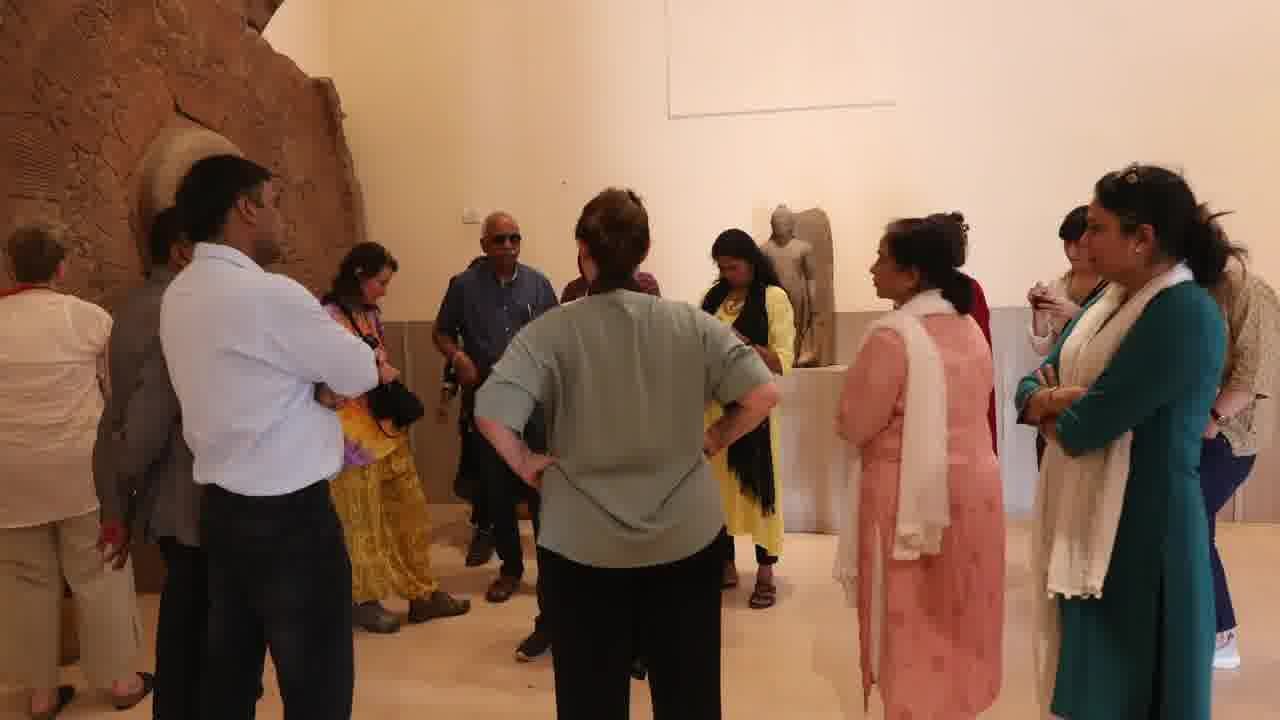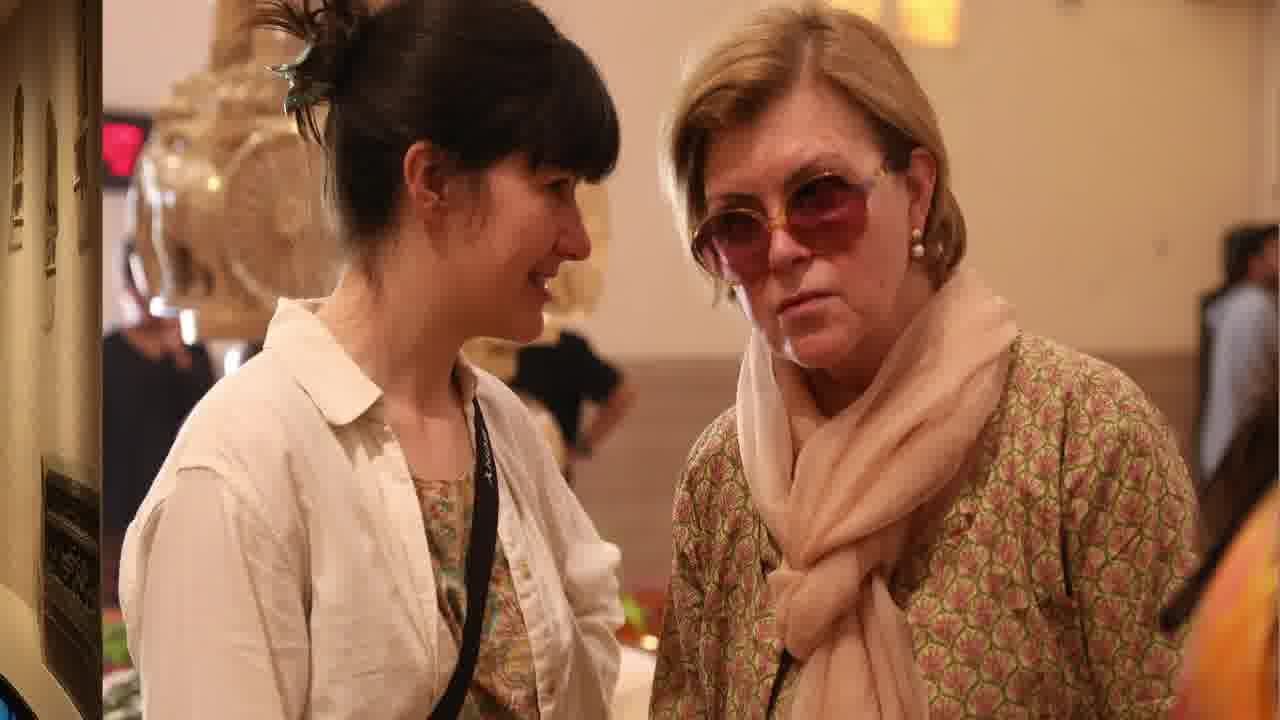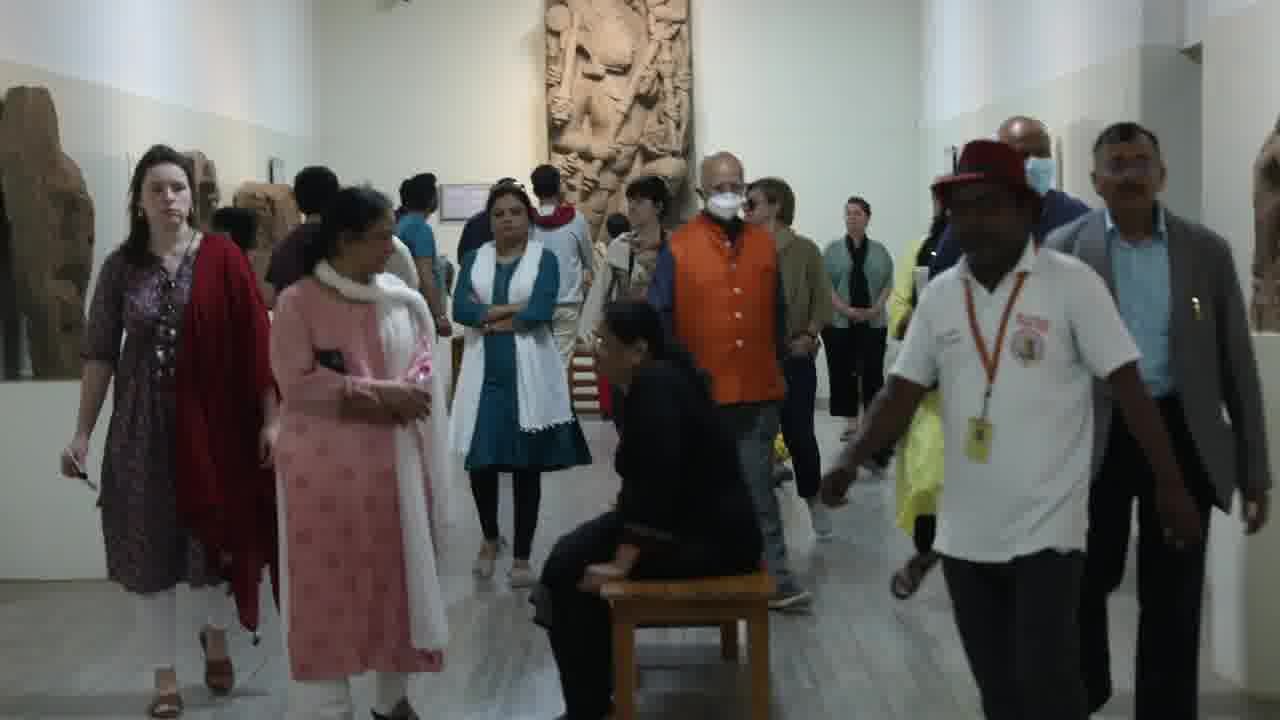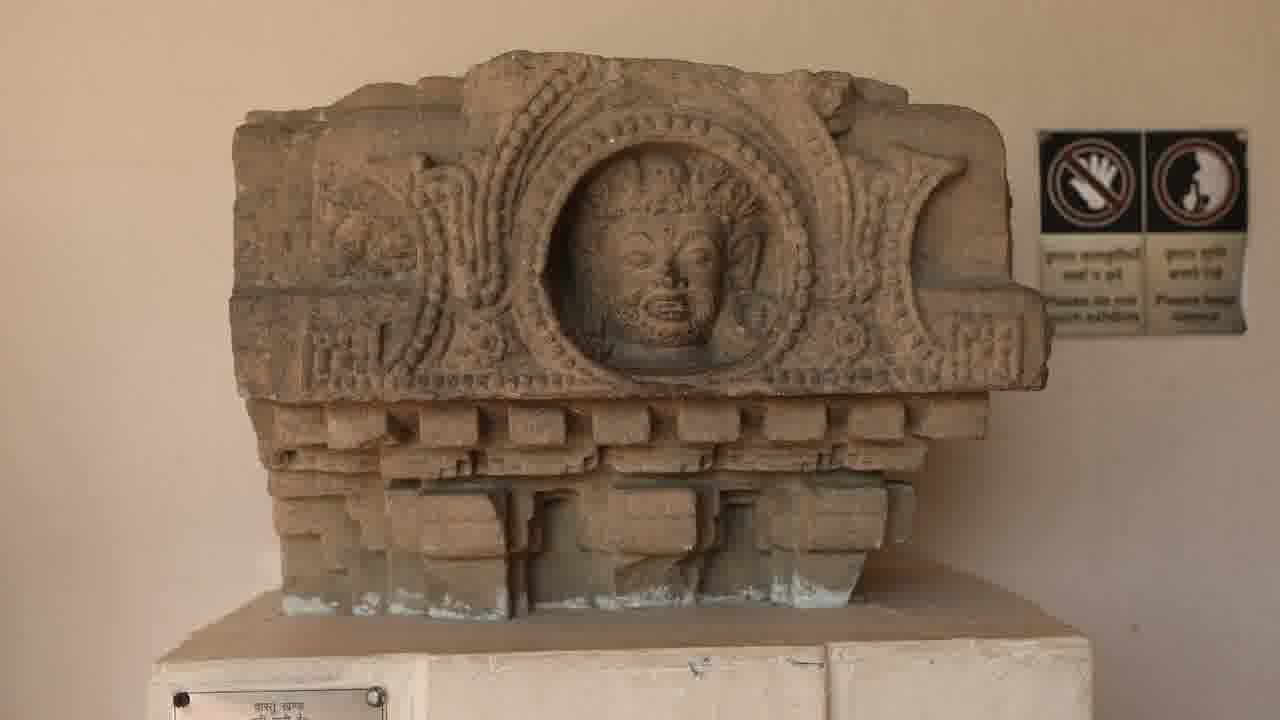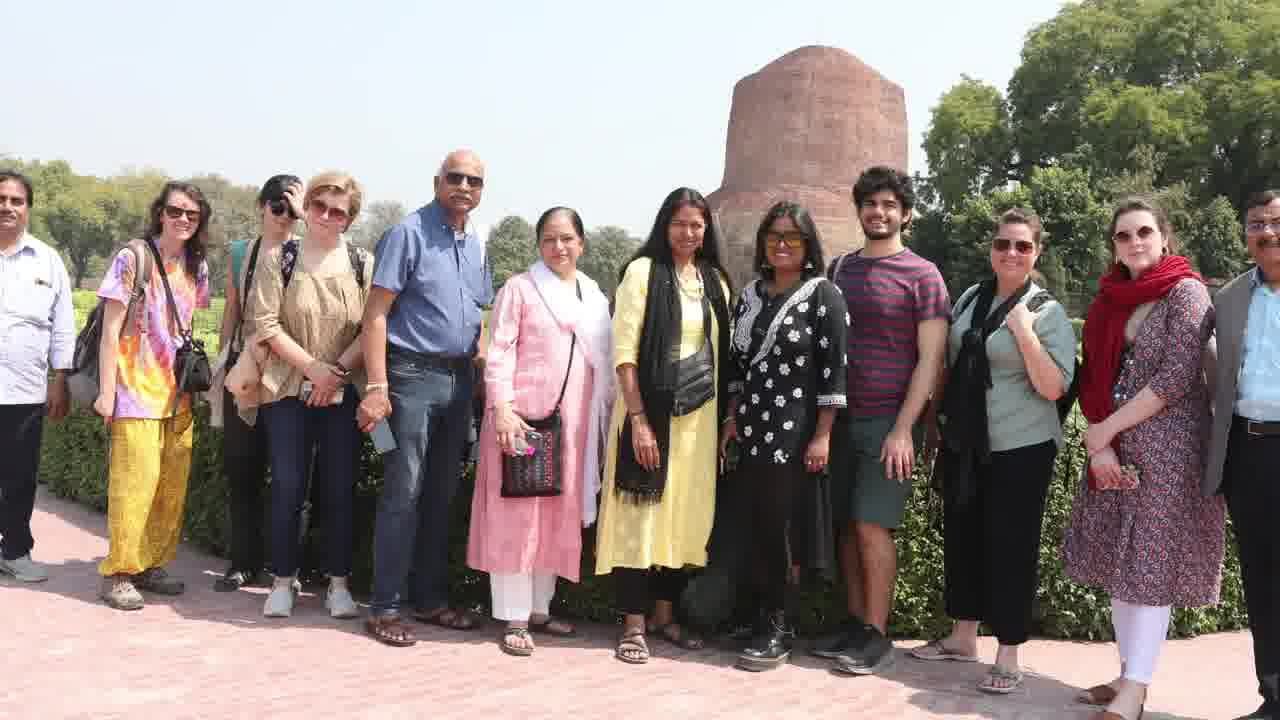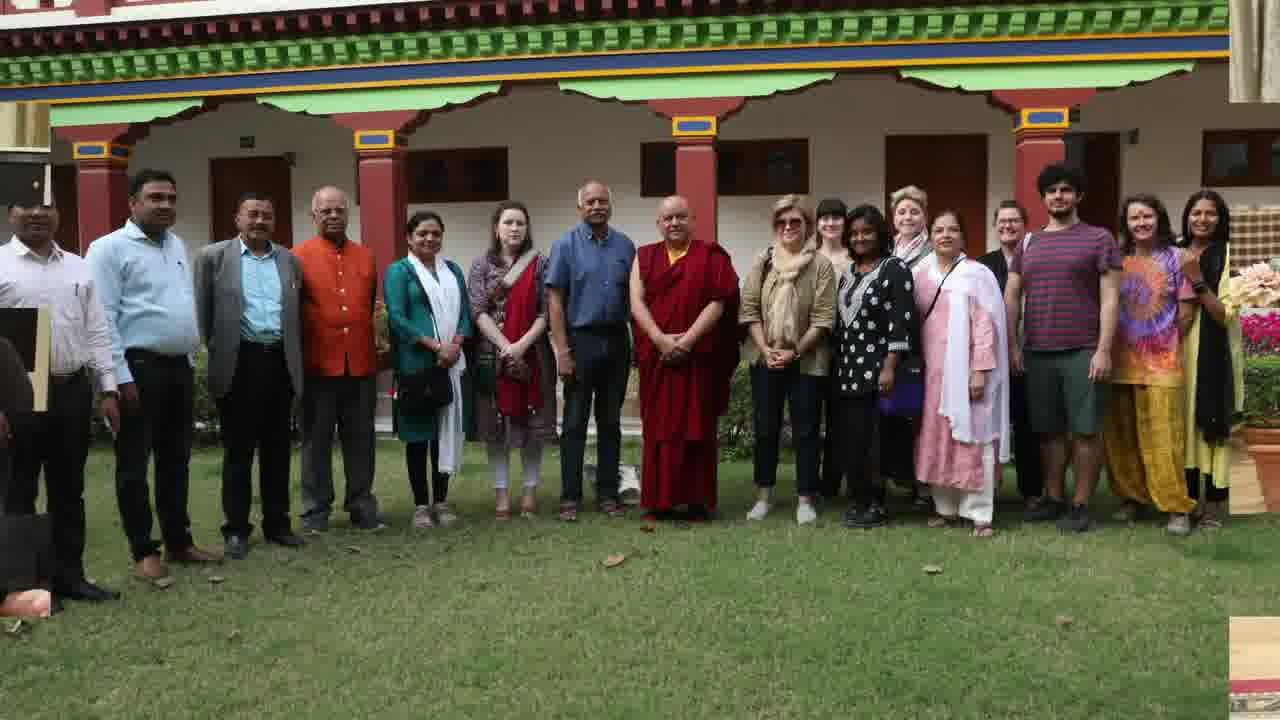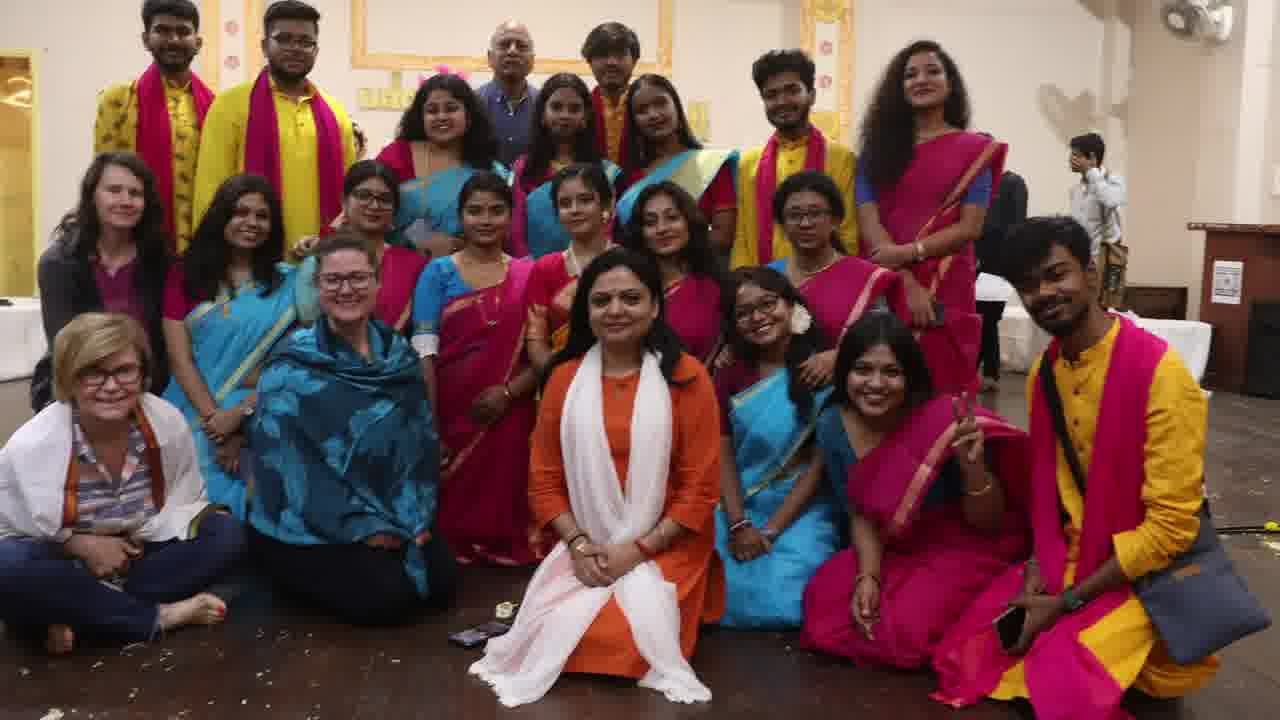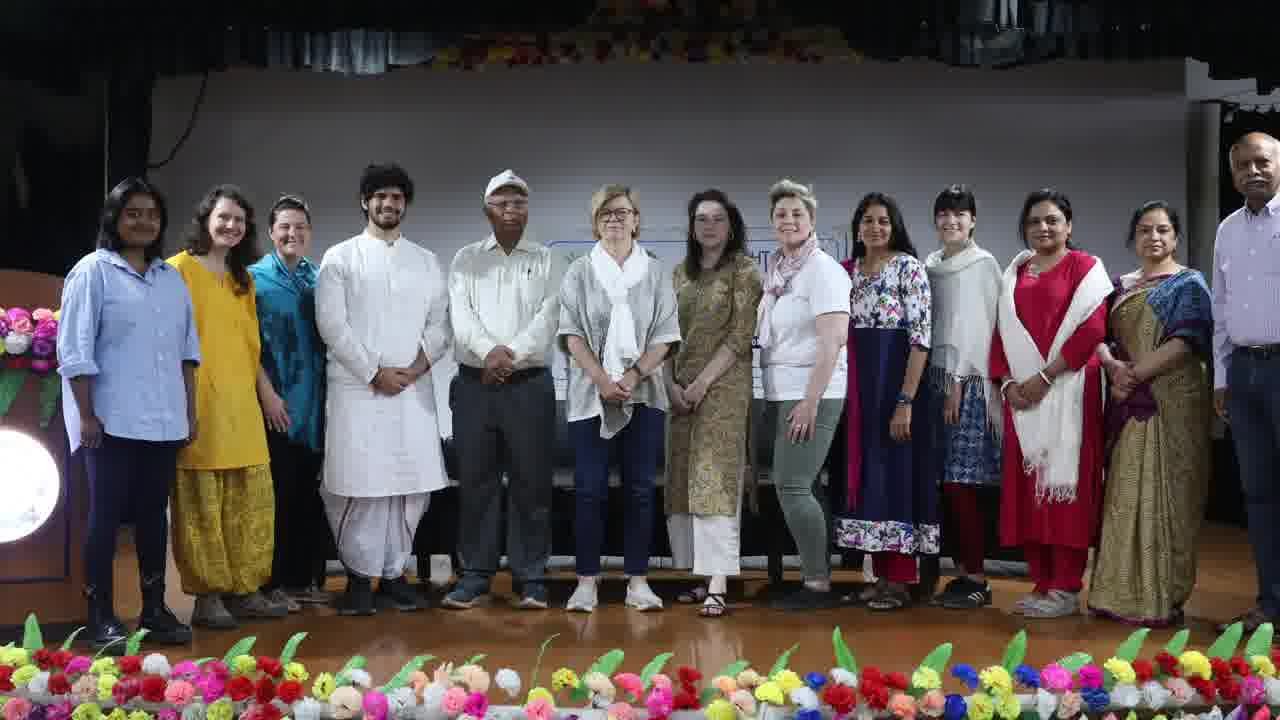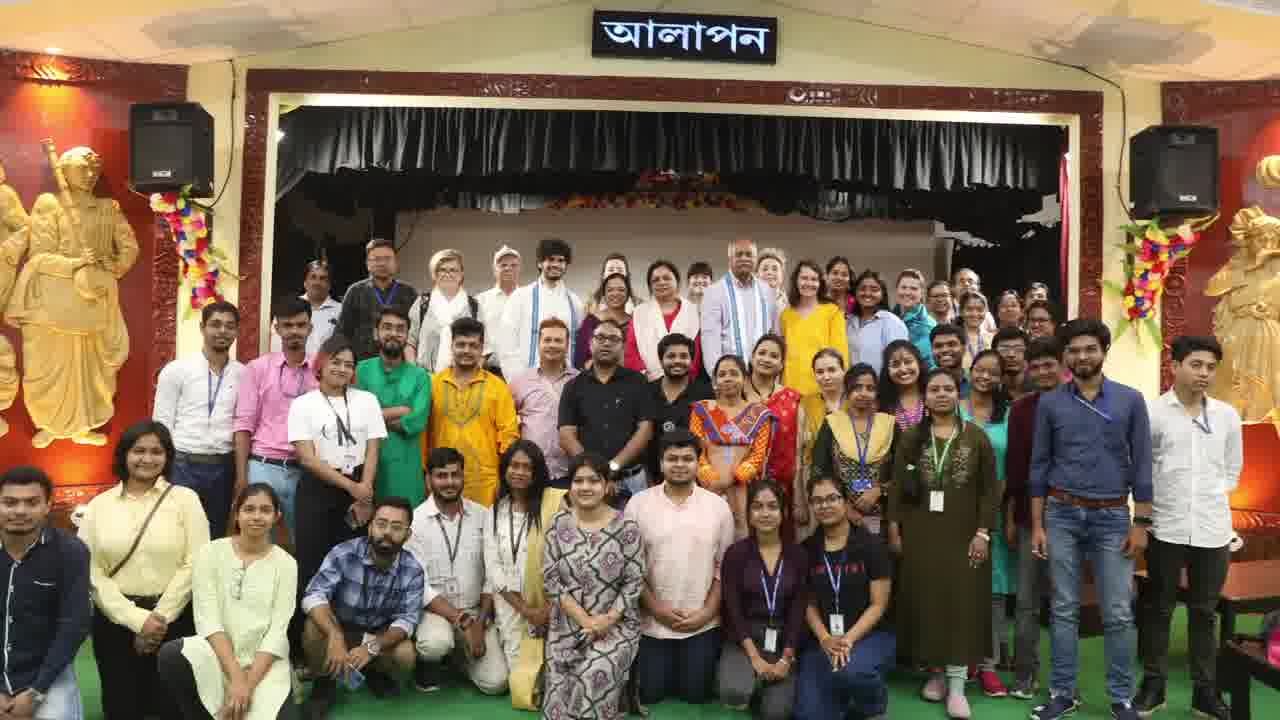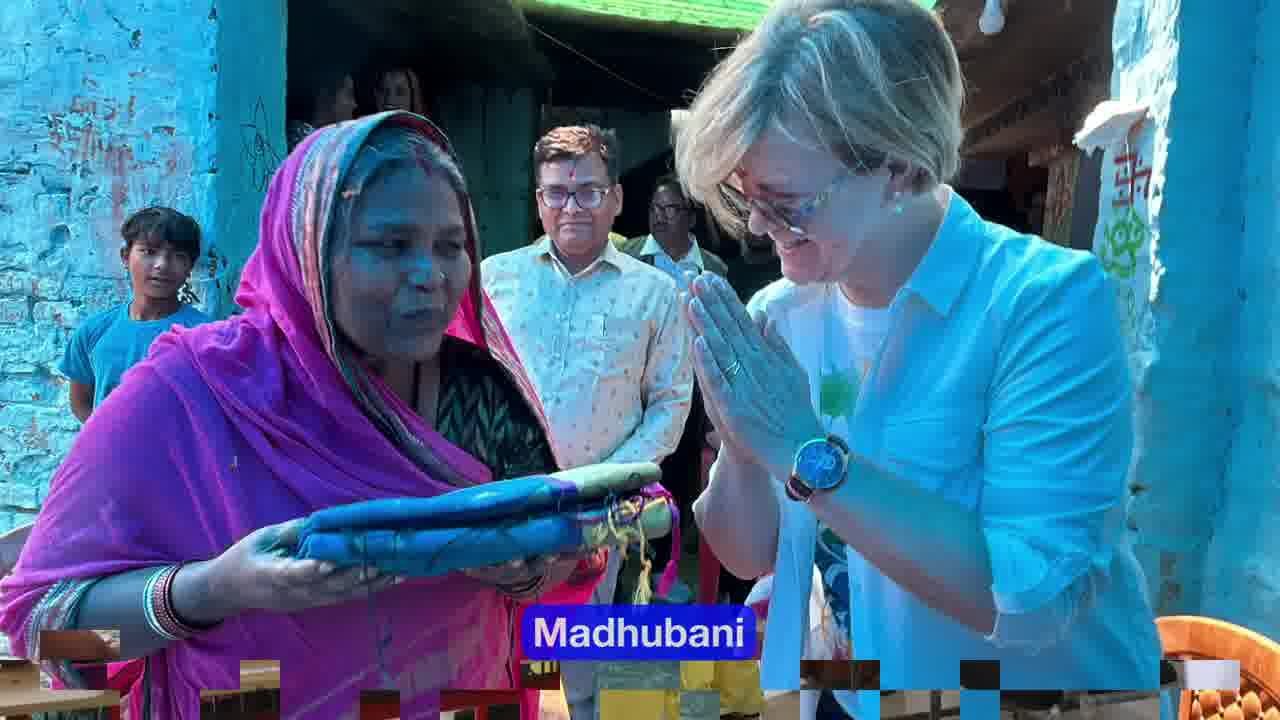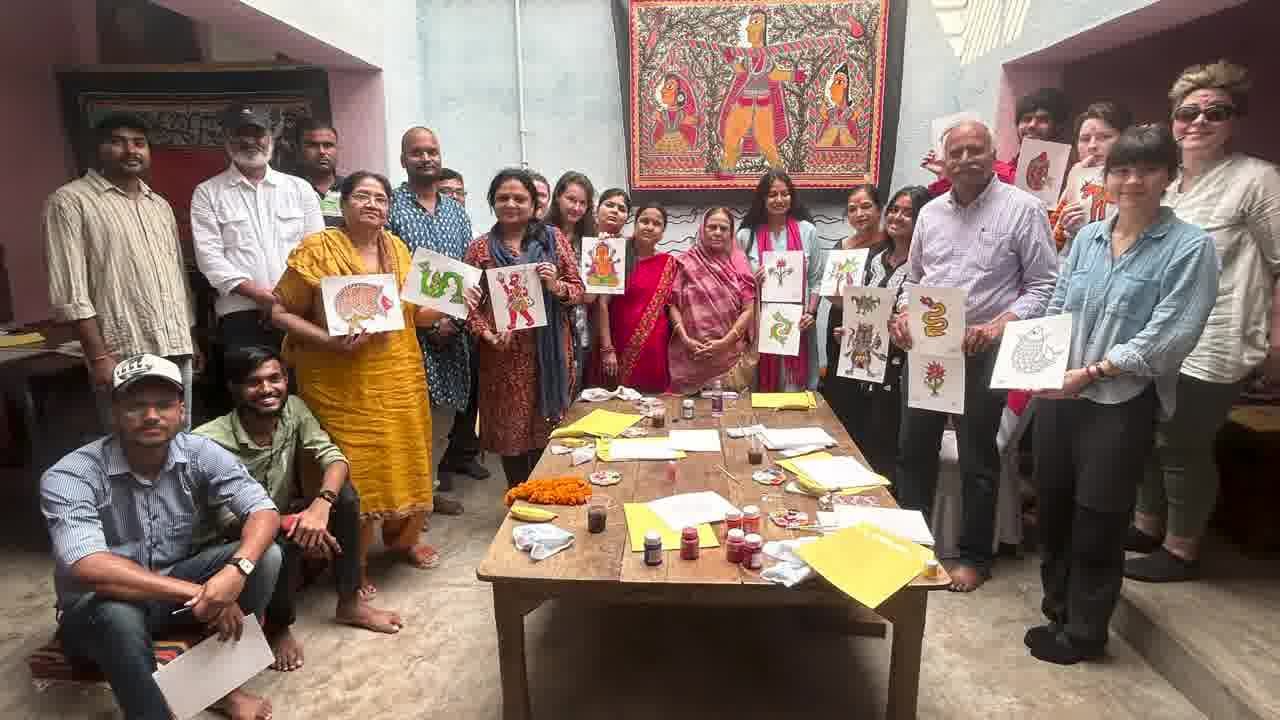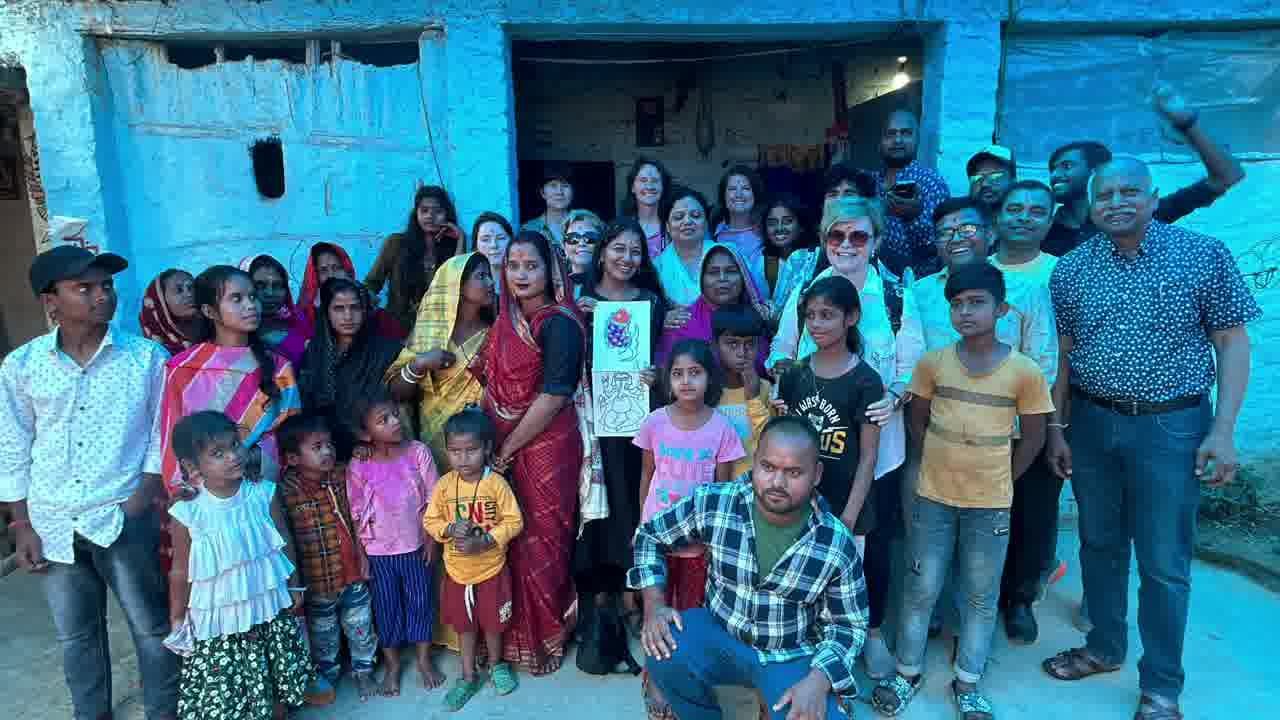Proposed Dates (subject to DOE approval)
Phase I: Pre-departure online orientation: Dec-Jan 2024
Phase II: Study Tour: Feb 26-Mar 27, 2024
Phase III: Online developing teaching materials: April-May 2024.
Program Summary
The scope of the project is to explore how members of various Indian communities think or talk rooted in ancient traditions and textual sources. The objective to introduce new theme-based Hindi learning materials about mindful lifestyles and wellness ideas traditionally practiced in India. The program participants will collect information, record individual and community insights about practices and perspectives related to contentment, mindful lifestyles and wellness in order to develop instructional materials and thus expand existing curricula. The goal is to create an instructional platform that will support the teaching of traditional mindful practices and perspectives more consistently and more cohesively in the Hindi and South Asian Studies classrooms in the U.S., based on focused information and well-designed instructional materials. The program participants will learn from lectures and selected readings of primary and secondary resources, they will make observations and discuss with local native speakers common practices and perspectives related to the different dimensions of mindfulness and wellness. Included are (a) physical, (b) economic, (c) social, (d)emotional, (e) psychological, (f) environmental well-being, (g) life- and domain-specific contentment.
Our initial research demonstrates that contentment is an important component of mindfulness, which has a unique local dimension. For the purpose to make the project initially implementable and to be able to unpack the theme, we will consider contentment as a cornerstone concept. In addition, we will explore several other concepts and cultural factors, which we will explain later, such as certain contextually defined language functions and uses, the idea of home and family, identity, arts, etc. The program consists of pre-departure and post-tour online work (held on 5 Saturdays 10am- 2pm December, 2023-January, 2024 and 5 Saturdays April-May 2024). The study tour includes the following locations and foci through lectures and activities: mindful and wellness G So lectures and activities at the 'Arsh Vidya Gurukulum" in Rishikesh: measuring contentment and Sc happiness, Lucknow University; legends and iconic places, Kolkata; balance in life through ( Madhubani art in Bihar, and the traditional practices and perspectives in Upanishadic and Buddhist texts at Benares University and Central Institute of Higher Tibetan Studies.
Restrictions on Participants
Eligible candidates who have not previously received a Fubright award will get preference: Candidates not retiring within the next 1-2 years will get preference: Individuals who are not currently employed ful-time are not eligible.
Travel as a Group
Participants are required to remain with their respective programs throughout the duration of the program. Travel outside of the program is prohibited. Participants are achised against visting their family or friends during the Study Tour, At the end of the overseas phase, participants are required to return to the U.S, with their program. There are no exceptions to this requirement.
The program is open to all U. S. based K-12, community schools and coliege instructors. It provides equal access and treatment for eligible project participants without regard to race, color, national origin, gender, age or disability condition. We will select 12 participants from a diverse group of teachers, emerging teachers and college students with a career goal to teach Hind, cuture, social sciences, environmental sciences and arts at elementary, middle, high and community colleges in the U.S. Most costs of the study tour are covered by the federal grant, however, The GPA grant does not provide funds for passport and visa expenses. Each participant must pay for their costs for wisa, health insurance, wilt, etc. Should the applicant fail to have the required documents prior to travel, the individual may be prohibited from participating in the project.
Health Information
The GPA grant does not cover the hesith and accident insurance of project participants. U.S./ED does not assume, by virtue of this grant, any responsibilty for any personal injury, accident, thess, and loss of personal property or other contingencies that may happen to participants during or as a result of their stay abroad. U.S./ED requires that participants be covered by heath and accident insurance bans. The insurance should include Emergency Medical Evacuation as well as Repatriation of Remains coverage, Information on recommended shots may be obtained on the Center for Disease Control's website http://www.cdc.gov/ (AI GPA participants must be educators, students, pre-service teachers or administrators who fulfil the criteria above and are currently teaching, studying, and/or administering in the eligible fields of humanities, social sciences, foreign languages, and/or area studies. Area studies is defined as a program of comprehensive study of the aspects of a society or societies, including the study of their geography, history, culture, economy, politics, international relations, or languages. If an educator or student is working in a variety of subject areas, she must spend the majority of his/her time working with elgible subjects.)
Leadership
The Project Director, Team Leader and Administrator Ashok Ojha, along with the Project Academic Director Prof. Gabriela Nik Ilieva, Cinical Professor, South Asian Linguistics, Department of Middie Eastern and Istamic Studies, New York University, will lead the study tour to India.
Program Support Comes From
The South Asian Language Programs at New York University (NYU). Yale University Macmillan Center, The South Asia Institute at the University of Texas at Austin (UTA) and Michigan State University, In India: Banaras Hindu University Department of Hindi, Varanasi; Arsh Vidya Gorukum, Rishikesh; Center for Higher Tibetan Studies, Sarnath-Varanasi; University of Lucknow: Swami Vivekananda University School of Humanities and Social Sciences, Barrackpore, Kolkata, West Bengal and Acharya Sukumar Sen Mahavidyalaya, Gotan, West Bengal.
To see videos and info from last years’ Fulbright Hays program, click here.

